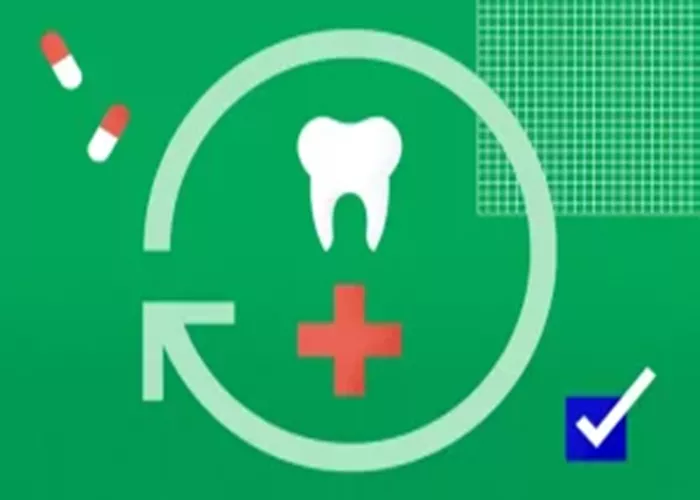Dental insurance in the UK serves as a vital financial safeguard for maintaining oral health. It provides coverage for various dental treatments, reducing the financial burden on individuals and families. Understanding how dental insurance works in the UK is crucial for making informed decisions about dental care. This guide will provide a comprehensive overview of dental insurance in the UK, including how it operates, what it covers, and the benefits it offers.
Introduction to Dental Insurance in the UK
Dental insurance in the UK operates through a combination of private and public schemes. The National Health Service (NHS) provides some dental care free of charge or at a reduced cost for eligible individuals, but private dental insurance plans are also widely available. These private plans offer additional coverage and flexibility, allowing individuals to choose their dentist and access a broader range of treatments.
Public Dental Care (NHS Dental Services)
The NHS provides dental care through a network of dental practices across the UK. Eligible patients can receive free or low-cost dental treatments, depending on their age, income, and other qualifying criteria. The services covered by the NHS include:
Examinations, x-rays, and scale and polish treatments for all patients.
Fillings, extractions, and root canal treatments for children and adults in certain circumstances.
Dental crowns, bridges, and dentures for patients with complex needs.
Orthodontic treatments for children under 18, subject to clinical need.
To access NHS dental services, patients must register with an NHS dentist. Registration is free, and once registered, patients can book appointments and receive treatments as needed. The cost of NHS dental treatments is subsidized by the government, and patients are only required to pay for some treatments, such as crowns, bridges, and orthodontics, through a banding system.
Private Dental Insurance
Private dental insurance plans offer additional coverage beyond what is available through the NHS. These plans are purchased by individuals or families and provide financial support for a range of dental treatments. Private dental insurance typically covers:
Routine dental check-ups and cleanings
Preventive treatments such as fluoride treatments and fissure sealants.
Restorative treatments including fillings, crowns, bridges, and dentures.
Orthodontic treatments for both children and adults.
Emergency dental care
Private dental insurance plans vary in terms of coverage, cost, and exclusions. Some plans may cover a percentage of the treatment cost, while others may provide full coverage up to a specified limit. Policies may also include an annual allowance for treatments, excess fees, and waiting periods before coverage begins.
When choosing a private dental insurance plan, it is important to compare different options and understand the terms and conditions of each policy. Key factors to consider include:
Level of coverage: Determine the range of treatments covered by the plan and whether it meets your dental care needs.
Cost: Compare the monthly premiums and any additional fees, such as excess charges, to ensure the plan fits within your budget.
Exclusions: Check for any treatments or conditions that are not covered by the plan.
Dentist choice: Confirm whether the plan allows you to choose your own dentist or limits you to a specific network.
Claims process: Understand how to make a claim and the procedures for reimbursement.
How Dental Insurance Claims Are Processed
When you receive dental treatment, the cost is usually paid either directly by the insurance company or by you, with reimbursement from the insurer. The claims process varies depending on the type of insurance plan and the provider.
For private dental insurance, you may need to pay for the treatment upfront and then submit a claim to the insurer for reimbursement. This typically involves providing receipts, invoices, and possibly a claim form. The insurer will review the claim and, if approved, send you a reimbursement check or direct payment to your dentist.
Some private dental insurance plans operate on a direct payment basis, where the dentist bills the insurer directly for the treatment. In this case, you may only need to pay any excess fees or copayments.
Benefits of Dental Insurance
Dental insurance offers several benefits, including:
Financial protection: Dental treatments can be costly, and insurance provides a financial safety net to cover these expenses.
Access to care: Private dental insurance plans often allow you to choose your own dentist and access a wider range of treatments.
Preventive care: Many plans cover routine check-ups and cleanings, promoting early detection and treatment of dental problems.
Peace of mind: Knowing that you have dental insurance can provide reassurance and reduce anxiety about dental health and treatment costs.
Conclusion
Dental insurance in the UK provides valuable financial support for maintaining oral health. Whether through the NHS or private plans, dental insurance can reduce the cost of dental treatments and provide access to essential care. Understanding how dental insurance works, comparing different options, and selecting a plan that meets your needs can help ensure that you receive the dental care you need without financial strain. By taking advantage of dental insurance, you can protect your oral health and enjoy the benefits of a healthy smile.
Related topics:

